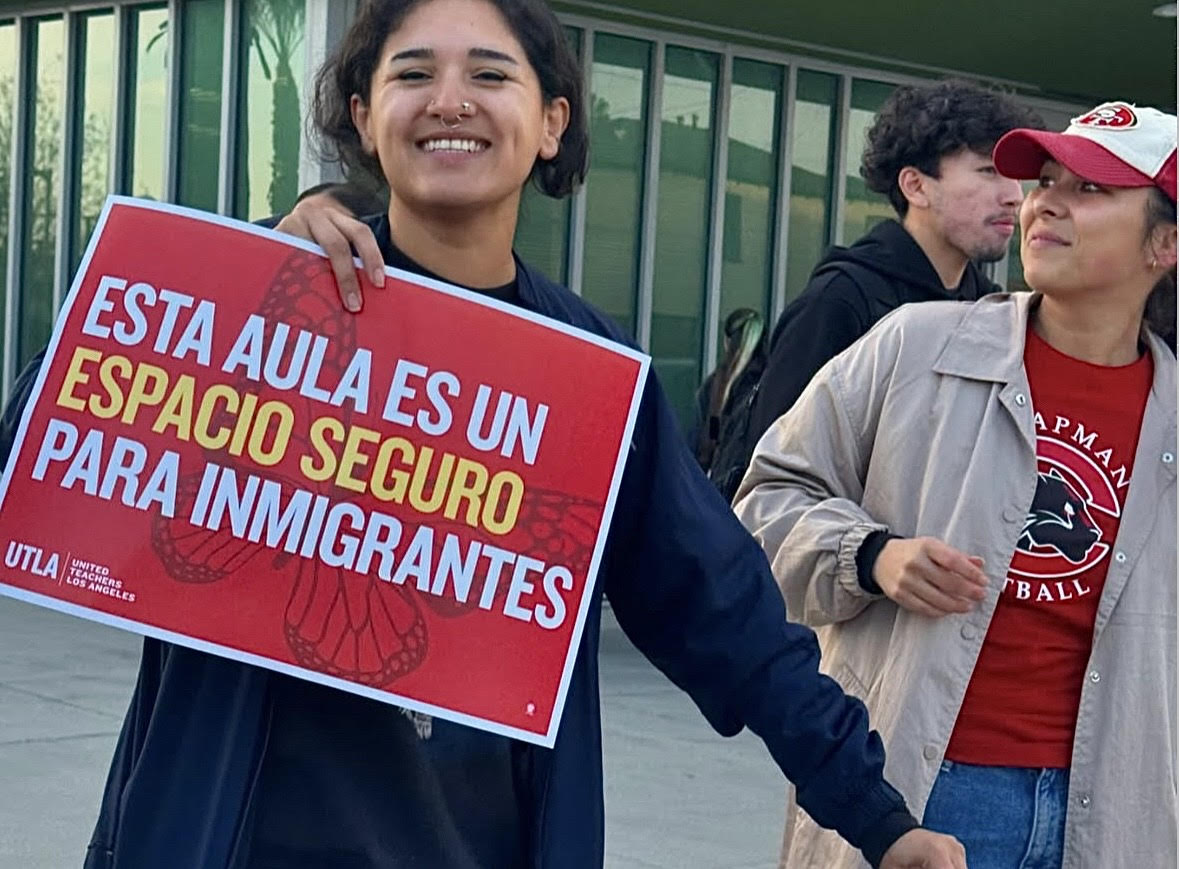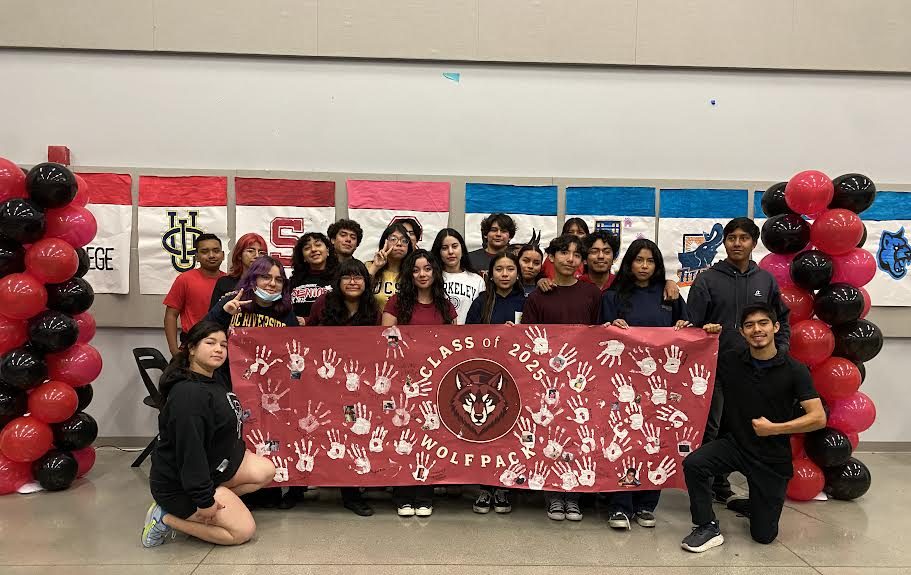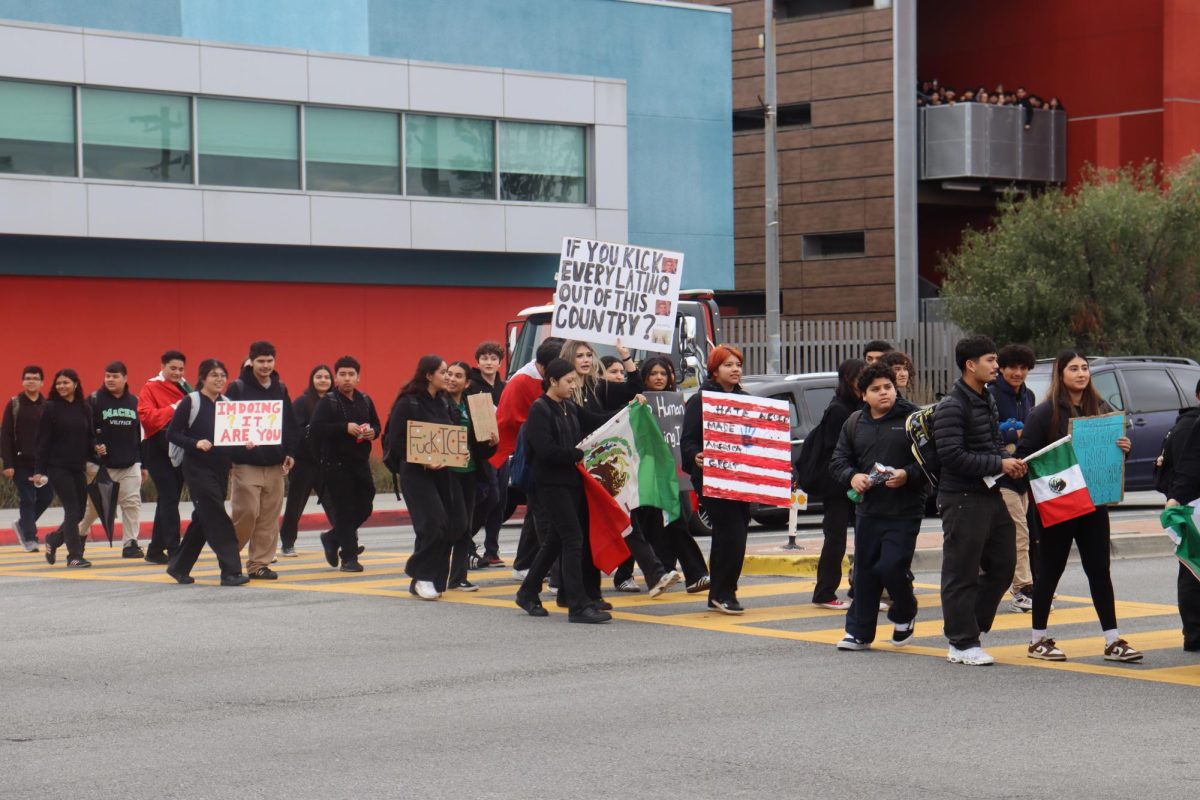The Los Angeles Unified School District (LAUSD) began distributing “Red Cards” to students and families in late Jan. as part of efforts to protect them from heightened immigration enforcement. However, some critics argue that the initiative could strain relations with immigration authorities and create challenges for local schools, worrying that giving out these cards might cause tension between LAUSD and federal agencies, making it harder for the district to work with them on other important matters.
The cards, developed by the Immigrant Legal Resource Center, are tiny red cards that fit in a wallet. One side outlines constitutional rights, including the right to remain silent and refuse entry to ICE officers without a warrant. The other side provides guidance on how to respond if approached by immigration agents. Teachers distributed the cards in classrooms, and they are also available to print online at LAUSD’s website.
At Maywood Center for Enriched Studies (MACES), 96.1% of students are of non-American descent, making these rights especially relevant to the school’s population.
Uzziel Cruz, a junior at MACES, believes understanding these rights is crucial for protecting families from wrongful immigration actions. “It’s sad to see ICE coming into areas we’ve previously deemed safe,” Cruz said. He was recently seen holding a sign that read, “Esta aula es un espacio seguro para inmigrantes” (“This classroom is a safe space for immigrants”).
As the son of two immigrants, Cruz said knowing these rights helps people “know what to do and not to make any mistakes where they could wrongfully take us.”
Teachers have taken an active role in distributing the cards to students. “UTLA wanted us to be leafleting,” Nora Torres, an AP English Literature teacher at MACES, said. UTLA, United Teachers Los Angeles, has supported the distribution of the cards as part of efforts to raise awareness about immigrant rights.
Torres emphasized that the Red Cards are an important tool in fighting misinformation and helping students understand their legal protections. “The Red Cards make it really easy to understand what people’s rights are,” she said.
Beyond legal guidance, Torres underscored the importance of creating a supportive, welcoming environment for students. “It’s all of our jobs to make this a welcoming place,” Torres said, emphasizing that students share the responsibility for fostering a positive atmosphere at school. Despite the anxiety surrounding immigration enforcement, Torres remains optimistic.
“We are putting out the right message, UTLA, the teachers, and everybody else,” she added.
As the political climate intensifies, resources like the Red Card help ensure that those at risk understand their rights and can protect themselves. However, the program’s success has led to high demand, causing the Immigrant Legal Resource Center to temporarily suspend its program allowing nonprofits to distribute the cards, as reported by The Hill.








